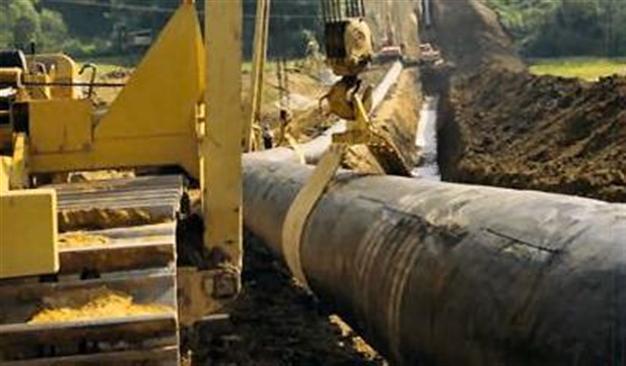European countries should build onshore parts for Turkish Stream, says Russian Energy Minister
MOSCOW - Reuters

Russian Energy Minister Alexander Novak said now European countries should be building onshore links for the Turkish Stream on their own at an exclusive interview with Reuters.
“Now counties should be building (onshore links) on their own. The routes could be different - they may come to Italy if they want. This is not our business anymore,” he said.
Novak added that the costs of the offshore parts of Turkish Stream would be “comparable” to those of the South Stream project. The budget to build the offshore section of South Stream was previously estimated at up to 17 billion euros ($18.3 billion).
Russia has a long-term goal of bypassing Ukraine as a transit country. It ships around 40 percent of its gas to Europe via Ukraine, while the rest goes via Belarus, Moldova, the Nord Stream subsea pipeline to Germany and the Blue Stream subsea pipeline to Turkey.
In December last year it cancelled plans to build the South Stream gas pipeline under the Black Sea to Bulgaria and onwards into southeast Europe.
It is now planning an alternative export route, unofficially called Turkish Stream, with a capacity of 63 bcm per year.
Instead of extending the pipeline further to Europe, Gazprom now plans to sell its gas at a hub on the Turkish-Greek border, requiring those European countries who want access to the gas to build links to the hub.
Asia plans Russia is also planning to ramp up gas exports to Asia to reduce its reliance on sales to Europe.
Russia plans to ship gas to China via two yet-to-be-built pipelines: Power of Siberia, supplied exclusively by two Siberian gas fields, and Altai, which is to connect the Russian gas pipeline system from West to East.
Russia and China reached agreement on the Power of Siberia pipeline last May. Novak said he hoped for a firm contract for Altai in the first half of this year.
“These (two) projects are not linked to each other... (The contract signed last May) will be implemented irrespective of whether Altai happens or not,” Novak said.
He added that Russia was sticking to plans to deliver its first gas to China via Power of Siberia at the end of 2018 or start of 2019. Russia and China are not discussing a pre-payment or loan for the Power of Siberia project anymore, he said.
Russia may ease the terms of its gas supplies to Ukraine but Kyiv will have to pay for the gas Moscow is supplying to rebel-held areas of east Ukraine, he also said.
A supply deal for the winter expires on March 31, along with a discount of $100 per 1,000 cubic meters of gas and a suspension of a take-or-pay requirement.
Novak said Russia was open to prolonging those concessions even without a new deal, which has been referred to as a “summer package,” for the period after March 31.
“A discount is possible under the contract as well. No separate (summer) packages are needed if Ukraine and Russia reach an agreement. Take-or-pay (suspension)... is also possible, it depends on the talks between companies,” Novak said.
 Russian Energy Minister Alexander Novak said now European countries should be building onshore links for the Turkish Stream on their own at an exclusive interview with Reuters.
Russian Energy Minister Alexander Novak said now European countries should be building onshore links for the Turkish Stream on their own at an exclusive interview with Reuters.